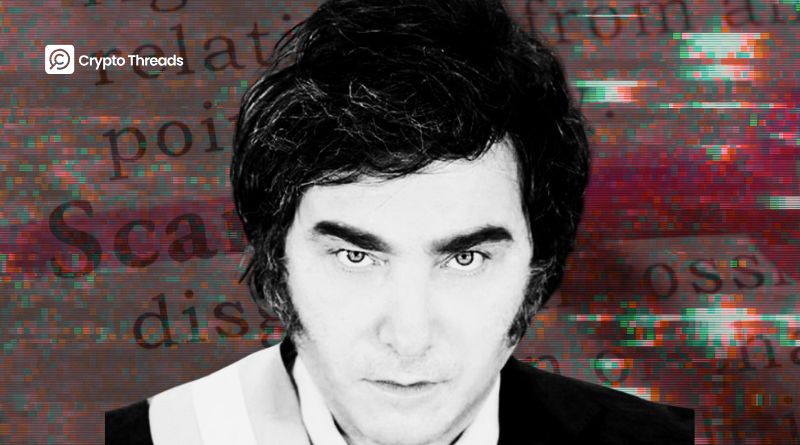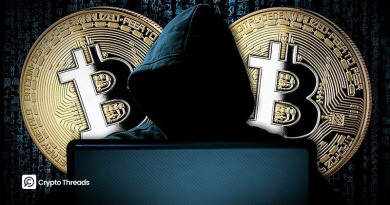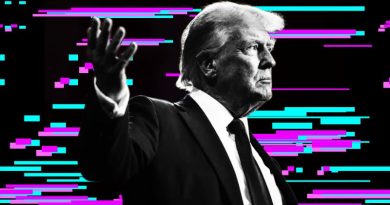Argentina President Javier Milei Shuts Down Libra Crypto Scandal Investigation Task Force
Argentina’s President Javier Milei has officially disbanded the government task force investigating the Libra cryptocurrency scandal through Decree 780/2024, citing alignment with his pro-crypto stance and libertarian principles.
Argentina’s President Javier Milei has officially shut down the special task force investigating the Libra cryptocurrency scandal through Decree 780/2024, signed in early May 2025. This decision has shocked the crypto community and the Argentine public as the Libra scandal was reaching its peak with thousands of affected investors. The move aligns with Milei’s pro-cryptocurrency stance and libertarian philosophy but has sparked controversy about the future of the investigation.
Background on the Libra Scandal
The Libra memecoin was launched in December 2024, developed by an anonymous group of investors calling themselves “Libertad Digital” (Digital Freedom). The project quickly gained attention after being marketed as “Argentina’s freedom coin” and associated with the imagery of libertarian thinkers.
Libra Scandal Cash Flow Analysis ( TRM Labs )
The scandal erupted when Libra’s price surged by 5000% in just three weeks, then plummeted as the anonymous developers withdrew all liquidity and disappeared. An estimated 30,000 Argentine investors were affected, with total losses reaching approximately $45 million. The incident is considered one of the largest pump-and-dump schemes in Argentina’s cryptocurrency history.
Under public pressure, the previous administration established a task force comprising financial experts, legal specialists, and blockchain technology professionals to investigate the case in January 2025, just weeks before Milei took office.
Details of Decree 780/2024
Decree 780/2024, signed by President Milei, not only dissolves the task force investigating Libra but is also part of a broader effort to “restructure and streamline the state apparatus.” According to the decree, 14 other agencies and commissions are being disbanded or merged.
The official rationale provided is “cutting unnecessary public spending” and “eliminating excessive government interference in free financial activities.” The decree also states that financial fraud cases will still be investigated by existing law enforcement agencies such as the Argentine Securities Commission (CNV) and anti-money laundering authorities.
However, it’s notable that these agencies lack the specialized expertise in blockchain technology and cryptocurrency that the disbanded task force possessed.
Milei’s Stance on Cryptocurrency
Javier Milei has long been known as an ardent supporter of Bitcoin and economic freedom. During his presidential campaign, he repeatedly declared that “Bitcoin is the return of money to the people” and criticized government control over financial markets.
Since taking office in January 2025, Milei has implemented numerous reforms to liberalize Argentina’s economy, including cutting regulations and promoting technological innovation. In a recent interview with La Nación newspaper, he stated: “The government should not interfere with people’s investment decisions. If they want to invest in Bitcoin, altcoins, or any other asset, that is their freedom.“
The decision to disband the Libra investigation task force is seen as consistent with Milei’s political philosophy but has raised concerns about consumer protection in the still-risky cryptocurrency market.
Reactions from Stakeholders
Milei’s decision has received mixed reactions from various quarters. The Association of Libra Victims in Argentina (AVLA), representing over 15,000 affected investors, organized protests in front of Casa Rosada (the presidential palace) on May 10, 2025.
People protest demanding justice for the victim ( Press TV)
“This is a direct blow to people who have lost their life savings. The government is abandoning its responsibility to protect citizens from financial crimes,” said Maria Gonzalez, AVLA spokesperson.
Meanwhile, Argentina’s crypto community has had complex reactions. Franco Amati, founder of Bitcoin Argentina, shared on Twitter: “Freedom doesn’t mean lawlessness. We need transparency and protection for the cryptocurrency market to develop healthily.”
The opposition Peronist party has criticized the decision as “irresponsible” and “supportive of financial criminals.” Opposition congressman Sergio Massa announced plans to introduce legislation to reinstate the task force in the upcoming parliamentary session.
Analysis and Expert Opinions
Economic and legal experts have varying assessments of this decision. Dr. Lucia Fernandez, Professor of Financial Law at the University of Buenos Aires, commented: “This is a trade-off between economic freedom philosophy and consumer protection. However, in an emerging market like cryptocurrency, the lack of specialized oversight bodies could have serious consequences.”
Manuel Beaudroit, CEO of Bitex, a major cryptocurrency exchange in Argentina, has a different perspective: “Free markets self-regulate. Fraudulent projects will be eliminated, and legitimate projects will survive. This is how Bitcoin has developed over the past 15 years without government intervention.“
Alex Tapscott, co-author of “Blockchain Revolution” and an international cryptocurrency expert, observed: “Argentina is conducting a bold experiment. They’re betting that complete freedom will bring greater benefits than imposed regulations. This may attract investment and innovation but also carries significant risks.”
Future of the Libra Scandal
With the task force disbanded, the future of the Libra investigation becomes uncertain. According to sources from Argentina’s Ministry of Justice, investigation files will be transferred to the Securities Commission and the prosecutor’s office.
However, many experts worry that these agencies lack sufficient resources and expertise to continue the investigation effectively. In particular, tracking anonymous developers behind Libra requires specialized skills in blockchain forensics that traditional agencies typically lack.
For victims, the possibility of compensation also becomes more remote. The Association of Libra Victims in Argentina is considering a class-action lawsuit, but this process is expected to take many years with no guarantee of results.
Conclusion
President Javier Milei’s decision to disband the task force investigating the Libra scandal marks a significant turning point in Argentina’s approach to the cryptocurrency market. This move clearly reflects Milei’s economic freedom philosophy but also raises questions about the balance between freedom and consumer protection.
While the global crypto community closely watches the “Argentine experiment,” thousands of Libra victims continue to face an uncertain future. Will the free market truly self-regulate and prevent future scams, or will Argentina become a haven for cryptocurrency financial crimes? The answer will likely reshape how the world views the relationship between government and blockchain technology in the coming years.



